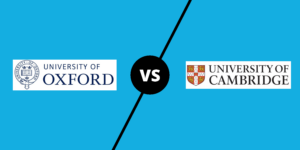The Ultimate Guide to Applying to UK Medical Schools
The Ultimate Guide to Applying to UK Medical Schools
Applying for a medical degree is a lengthy and difficult process with more steps than most other subjects. That’s why we have created this ultimate guide covering everything you need to know on how to be a successful applicant.
Academic requirements
Most medical schools require their students to have taken GCSE English, Math and Science, or equivalent in the local education system. It is important to have scored at least a grade 5 on your GCSEs, however many schools will ask for a minimum of 7 points to guarantee direct entry.
Generally, most universities will require Biology and Chemistry at A level or International Baccalaureate. To be eligible for most medical schools, you should also take Physics.
If you don’t meet these requirements, don’t fret! Scroll down to the foundation course section to learn how you can still be accepted to medical school.
Getting work experience
Prior to the COVID-19 pandemic medical work experience was considered a vital part of your application. Because the pandemic has drastically limited the types of experience you can get, this requirement has been relaxed and you won’t be penalised if you haven’t been able to get work experience. Nonetheless, you should still try and get experience either by volunteering or by looking for remote opportunities.
Common types of work experience:
- GP placements
- Hospital placements (in the UK all hospital placements for secondary school students are currently on pause)
- International placements with charities, hospitals etc.
- Volunteering with a medical charity or organisation, such as St. John’s Ambulance
If you are struggling to find a work placement, get in touch with us today and we can help you find one.
Foundation course
A foundation course, commonly referred to as a pre-clinical year, is an excellent option for students who may have missed the entry requirements for the Undergraduate degree, but still demonstrate the necessary academic potential. It may suit you if:
- You didn’t take science subjects at secondary school level
- You didn’t achieve the required grades
- The science subjects you took were insufficient
- You didn’t get into medical school the first-time round
- You meet some of the Widening Participation criteria (for example having been in foster care)
Depending on the university, you may be guaranteed a place in its medical school if you perform satisfactorily throughout the foundation course and pass the medical test and interview. Some of the universities offering a pre-clinical year are:
- University of Central Lancashire
- Cardiff University
- University of Leicester
- University of Dundee
- University of Aberdeen
You can apply for a foundation course through UCAS, but before you apply make sure that you meet the entry criteria.
Choosing a medical school
Choosing your future university is an exciting decision to make and it can be difficult to limit your decisions to only four medical schools. This makes it even more important that you do your research and choose the one that will fit you best.
There are several different types of medical schools in the UK. Firstly, there are the traditional courses where you will learn in a classroom setting for the first two years and then move to a clinical setting in year three and four. Secondly, there is the integrated system which combines classroom and practical learning from the very start. Thirdly, there is the intercalated system which allows you to take a year out of medicine to gain a BSc or MSc in a related subject.
Competition is fierce for all medical schools and competition is the greatest for the universities that offer government funded places for medicine. There is slightly less competition for universities offering non-government funded medicine places. If your academic performance isn’t the strongest and you can afford to do so, it may be worth choosing the latter option.
Furthermore, you should think about what type of location you would prefer. Would you prefer to study in a city or in the countryside? Do you prefer a campus setting or a spread-out university? It’s also worth factoring in links to hospitals and practical considerations around placements. For example, you might have to travel or relocate for placements, whereas some locations may have hospitals on their doorstep.
Writing your personal statement
Writing a personal statement forms a part of applying to any undergraduate degree, and medicine is no different. You should use this opportunity to provide evidence that you possess the qualities required by a trainee doctor. Instead of telling the tutor what you think you’re good at; give examples that demonstrate what you’re good at.
If you have work experience you must include it in your personal statement. Reflect on what you learned, what you liked and what you want to learn more about. Additionally, you should showcase your passion for the medical profession and explain your reasons why you want to study this degree.
As a minimum your personal statement should cover the following:
- Your reasons for wanting to study MBBS
- Your understanding of a doctor’s role
- Your health-related work/work shadowing/volunteering and your thoughts on what was learnt from these experiences
- Demonstrate your ability to have a healthy work/life balance
- Demonstrate your ability to meet various and perhaps contradictory demands/challenges
- Show initiative and enterprise but do not simply list your achievements
- Show your ability to communicate effectively and work as a team
If you book our medical school admissions service, we will professionally edit your personal statement to ensure you meet the medical school’s requirements.
Taking the tests
Prior to being accepted to a medical school you must take and pass a medical school admittance test. The most common tests are the University Clinical Aptitude Test (UCAT) and the Biomedical Admissions Test (BMAT). When researching universities make sure you find out which test the university wants you to take.
The registration deadline for this year’s BMAT is 1 October 2021 and the UCAT registration closes on 22 September. There are many courses online to help you be ready for these tests. TopCourses can provide you with a reading list to thoroughly prepare you for the examination.
Going to an interview
Congratulations on making it this far! You have now done the bulk of the application. Most medical schools use either traditional (panel) interviews or Multiple Mini Interviews (MMIs). MMIs are popular because they help interviewers assess your soft skills and gain a better picture of your suitability as a candidate. The total time for MMIs will be around two hours and each mini interview will take around ten minutes. Before each one, you’ll be presented with a scenario and given time to prepare an answer. You’ll either be asked a question by an interviewer or you’ll engage in a role-play scenario with an actor whilst an interviewer watches.
The interview season usually lasts from November to March, and it can take up to the end of March to find out if you’ve been made an offer. All upcoming interviews will be held in accordance with COVID-19 guidelines.
We offer a 60-minute interview practice session with an NHS doctor to ensure that our students feel confident about acing their interviews.
You’ve received an offer: what now?
Most offers to medical school are conditional and are contingent on you achieving certain scores in your final year exams. Keep studying and focusing on school so you don’t let all your hard work go to waste.
You will also be required to apply for a Disclosure and Barring Service (DBS) check if you live in the UK. If you live abroad, you will need to get a certificate of good conduct.
What to do if you’ve not been accepted
There are other routes available to you if you have not been accepted into medicine the first-time round. You can apply for a foundation course and join a medical school that way, or you can apply for biomedical sciences. If you perform well, it’s possible to switch to medicine during your undergraduate degree, however most students choose to pursue a graduate route into medicine.
Whatever the outcome TopCourses is here to help. Book your free initial consultation today.






